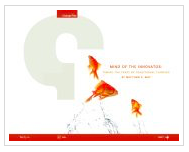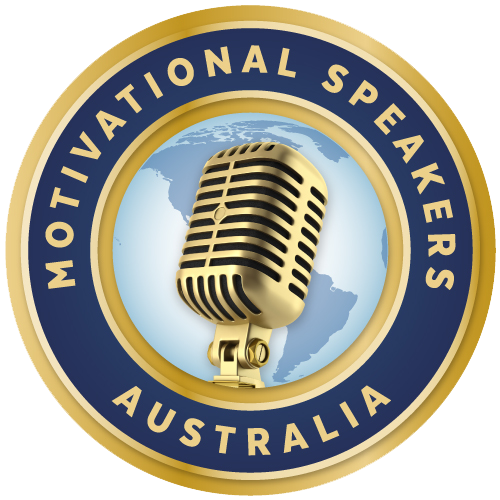by theEmother | Sep 28, 2012 | business ideas & thinking, so you think you're in business
“In education the starting point is what you don’t know.
Before you can begin your research or frame your experiments you’d better make sure that you are asking the right questions about what you don’t know. Trying to understand the universe through science can only come from a place of not knowing.
Innovation and creativity can only exist with the wonder of not knowing. I wonder what will happen if I mix this thing here with this thing over here. I don’t know but would love to find out. Curiosity is born from not knowing.
Not knowing therefore can help us change and grow.”
By Craig Coggle for ChangeThis.com
by theEmother | Aug 10, 2012 | build a Mother of a Business, business ideas & thinking, so you think you're in business
“A decade into the 21st century, one thing has become clear: change is the new normal. In business, we call it innovation, and it’s a strategic pillar in nearly every organization. Thanks to a growing body of research and thought leadership in recent years, we’re learning a great deal about the individual skill sets behind innovation, and the organizational strategies that create disruptive growth. Yet in companies around the world, well-intentioned innovation initiatives crash and burn, despite a wealth of great ideas, copious research, and well-designed strategies.
Why? Innovation is not just about data analysis, plans and processes, and thinking outside the box. More than anything else, innovation is about change. And the truth is that as much as we’d all like to think otherwise, we are all hardwired to resist it.”
And how does that impact on the business decisions you make…
By Lisa Bodell for ChangeThis.com
by theEmother | Sep 18, 2007 | business ideas & thinking, MEinc, so you think you're in business

By Matthew E. May for Change This
Matthew May, author of Elegant Solutions: Breakthrough Thinking the Toyota Way and a popular ChangeThis manifesto on the subject, now brings our attention to the ‘Seven Sins of Solutions’, the traditional ways of thinking that prevent us from divining the most accurate—and elegant—of solutions to any problem solving situation.
Using accessible examples, you’ll find yourself saying “Yes! That happens to me!” as you read. Lucky for us, May also provides methods to avoid those deadly sins and train our brains to think differently, allowing our inner innovator to flourish.
An excellent place to start the “what do I want to do” process…
let me know what you think…


